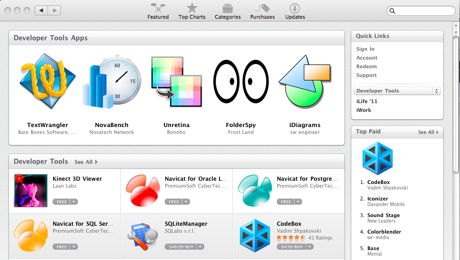Enough with the cry-baby 'open letters' to Apple


What these letters are good at is creating a hubbub in the blogs and news sites. But it's all an exercise in futility. And stupidity.
The latest open letter is from Richard Ziade, the founding partner of Arc90 and author of Readability. IT targets Apple's recent App Store subscription policy. In his blog, Ziade said Apple's rule — taking 30 percent of App Store subscriptions — "smacks of greed."
You’ve achieved much of your success in hardware sales by cultivating an incredibly impressive app ecosystem. Every iPad or iPhone TV ad puts the apps developed by companies like ours front and center. It was a healthy and mutually beneficial dynamic: apps like ours get exposure and you get to show the world how these apps make your hardware shine. That’s why we’re a bit baffled here.
It appears that iOS developers didn't expect Apple to ask them to share a bit of the hefty development and maintenance costs required to create its new digital platform. Ziade mentioned the old PC app and content platform model that we've lived with for decades, that "hardware shine" business.
In the old model, Apple makes the hardware, and the IDE, and the OS, and the online store, and markets the platform as well as provides for the maintenance of the platform. Developers get to ride on the platform. This is the way it's been forever, but maybe not in exactly the same way for the new mobile platforms, or at least not for the Apple platform.
Ziade says that small developers won't be able to invest in the Apple platform. And that may be true. Of course, that decision must be made when writing for any new platform, weighing costs, the market size and development costs.
To be clear, we believe you have every right to push forward such a policy. In our view, it’s your hardware and your channel and you can put forth any policy you like. But to impose this course on any web service or web application that delivers any value outside of iOS will only discourage smaller ventures like ours to invest in iOS apps for our services. As far as Readability is concerned, our response is fairly straight-forward: go the other way… towards the web.
Here's one thing I'm sure of: reaction down in Cupertino was "whatever," or maybe, "we will see you later."
Apple has told bigger guys than Richard Ziade to stuff it. And bigger industry players have tried the open letter ploy with similar sucess. A year ago, it was John Warnock and Chuck Geschke, the founders of Adobe, trying to persuade the community that Apple was wrong, wrong, wrong, about Flash on iOS.
We believe that consumers should be able to freely access their favorite content and applications, regardless of what computer they have, what browser they like, or what device suits their needs. No company — no matter how big or how creative — should dictate what you can create, how you create it, or what you can experience on the web.
The outrage expressed at the time appears to have cooled with the continuing failure to get Flash Player to run on mobile devices in an acceptable manner. The player software is "expected" in the spring for the Xoom. Motorola on Monday said it will be available after the launch.
So, please, enough with the open letters.
On the other hand, here's what we do know on the Apple App Store subscription model: the policy and fees will be refined over the coming months. Some of this clarification is happening daily it appears. Jobs reportedly said on Tuesday that the In-App subscriptions rules don't apply to software as a service.
Meanwhile, some have questioned the whether certain subscription rules cover file-sharing services such as Dropbox.
This conundrum of rule violations could affect other similar services, such as Dropbox. The file-sharing service currently offer users a free app that lets users access files saved to their online Dropbox storage. Users get 2GB of space for free, but can "buy" more space by paying monthly or yearly fees. That could be construed as offering additional extra functionality for a "limited time."
My guess is that this will be settled in favor of the service. And so on ...